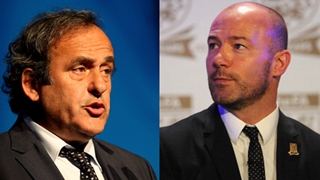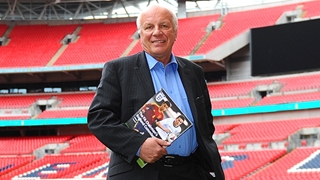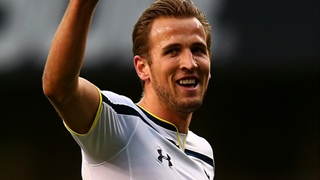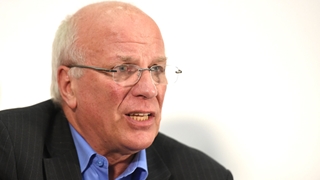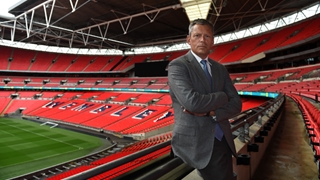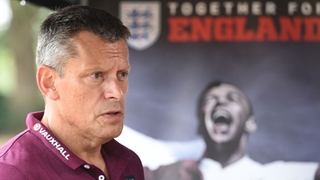
The current rules state that Premier League clubs must include eight homegrown players in their 25-man squads.
And, speaking at Friday’s Together For England Roadshow in Fulham, Glenn responded to his Premier League counterpart Richard Scudamore’s recent comments over the viability of the current system or an increased quota.
"I’ve spoken about this issue with Richard quite a lot, we’ve got the same goals in mind and he’d like to see a successful England team," explained the CEO.
"He’s a bright guy, who knows football well and the challenges were appropriate but I don’t agree with all of them.
"The fact you can’t avoid is that, compared to our continental competitors like Germany, France and Holland, far fewer homegrown English players start in our league.
"So, it’s about how do we get our young players more competitive playing time?
"There’s a quota system already, so the question is whether extending that quota would help. The FA think it probably would, but we’re prepared to try and look at other remedies as well."
As Glenn alludes to, current statistics show that homegrown players in other European leagues do stand a greater chance of featuring more regularly for their clubs.
But with more and more finance now starting to arrive in many of these leagues, increasing the spending power of the clubs, he also believes that trend may be stunted and that is something which has been noted within UEFA.
"It was interesting that Michel Platini came out and said the exact same thing," he added.
"In Germany, it’s one in two German players starting, but that trend is going up as more money goes into German football and with freedom of contract, and the same will go on in Spain.
"So it’s a big issue, how do you reconcile successful clubs with successful national teams?
"It’s one to keep debating, but there is more in common with us and the Premier League than actually divides us."
Since his arrival at The FA in May, Glenn has already opened up channels of communication with Scudamore and the Premier League on a number of issues.
And he believes that the relationship, and working closely together, can be used for the benefit of all aspects of English football in the future.
"I’d call it collaborative," he explained. "Our role is to govern the wider interests of football in the country and that’s a different role to representing the interests of 20 Premier League clubs.
"I call it ‘active collaboration’.
"We don’t have to agree on everything but we have to talk and treat each other with respect to find ways, like in any negotiation, of what we have in common and what totally divides us and work on that."
Glenn also responded to the news that the date for the election of the new FIFA President has now been set for next February.
And he admits that any moves to reform the world governing body are welcomed from the European nations.
"Absolutely, The FA will work totally alongside UEFA as we need a common European point of view," he said.
"In the world of football you can’t take individual country decisions.
"I think Platini would be a great choice but as important as who, is what kind of people we want to have.
"There has been real progress this week in getting a reformed committee, independently managed and driving through the governance changes that we need for FIFA.
"It’s too big a sport to be run like it’s being run, so I think the ultimate shape of FIFA is as important as who the next leader is."




